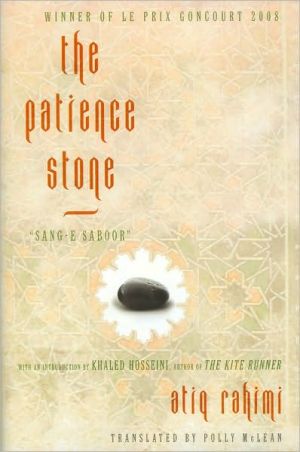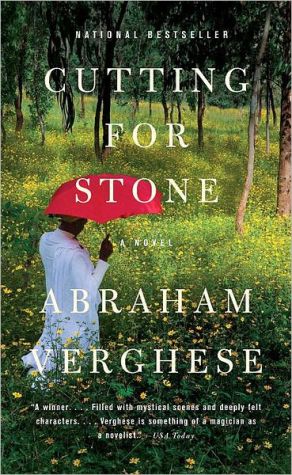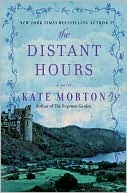The Patience Stone: "Sang-E Saboor"
In Persian folklore, Syngue Sabour is a magical stone, a patience stone, that absorbs the plight of those who confide in it. But here, the Syngue Sabour is not a stone, but a man lying brain-dead. His wife sits by his side, resenting him for not resisting the call to arms, for wanting to be a hero, and in the end, for being incapacitated. Yet she cares, speaking to him, revealing her deepest desires, pains, and secrets. She speaks of her life, not knowing if her husband hears, confessing...
Search in google:
“For far too long, Afghan women have been faceless and voiceless. Until now. With The Patience Stone, Atiq Rahimi gives face and voice to one unforgettable woman–and, one could argue, offers her as a proxy for the grievances of millions…it is a rich read, part allegory, part a tale of retribution, part an exploration of honor, love, sex, marriage, war. It is without doubt an important and courageous book.” from the introduction by Khaled Hosseini, author of The Kite Runner and A Thousand Splendid SunsIn Persian folklore, Syngue Sabour is the name of a magical black stone, a patience stone, which absorbs the plight of those who confide in it. It is believed that the day it explodes, after having received too much hardship and pain, will be the day of the Apocalypse. But here, the Syngue Sabour is not a stone but rather a man lying brain-dead with a bullet lodged in his neck. His wife is with him, sitting by his side. But she resents him for having sacrificed her to the war, for never being able to resist the call to arms, for wanting to be a hero, and in the end, after all was said and done, for being incapacitated in a small skirmish. Yet she cares, and she speaks to him. She even talks to him more and more, opening up her deepest desires, pains, and secrets. While in the streets rival factions clash and soldiers are looting and killing around her, she speaks of her life, never knowing if her husband really hears. And it is an extraordinary confession, without restraint, about sex and love and her anger against a man who never understood her, who mistreated her, who never showed her any respect or kindness. Her admission releases the weight of oppression of marital, social, and religious norms, and she leads her story up to the great secret that is unthinkable in a country such as Afghanistan. Winner of the Prix Goncourt, The Patience Stone captures with great courage and spare, poetic, prose the reality of everyday life for an intelligent woman under the oppressive weight of the Taliban regime in Afghanistan.Publishers WeeklyRahimi (Earth and Ashes) won the 2008 Prix Goncourt for this brief, melodramatic novel set amid factional violence “somewhere in Afghanistan or elsewhere.” It follows the circumscribed movements of a Muslim woman largely confined to the house where she nurses her comatose husband, who's been shot by a fellow jihadist. A humorless, inflammatory mullah pays the woman unwelcome visits, and sexually menacing soldiers break into her house. Though such events generate tension and drama, the novel's cultural and historical milieu lacks specificity, and Rahimi may have erred in sketching the story's political context vaguely. For some readers, his intimate attention to objects and spaces may compensate for the grating confessional tenor that develops later, when the narrator divulges damning secrets to her husband's unresponsive body and fulfilling the book's premise a little too obviously by referring to him as her “patience stone.” McLean's translation is faultless, but the narrator's reminiscences feel stilted; the patience-stone conceit borders on gimmickry; and incidents of a violent or sexual nature seem overdetermined. (Jan.)
The room is bare. Bare of decoration. Except on the wall between the two windows, where someone has hung a small khanjar and, above the khanjar, a photo, of a man with a moustache. He is perhaps thirty years old. Curly hair. Square face, bracketed by a pair of neatly tended sideburns. His black eyes shine. They are small, separated by a hawklike nose. The man is not laughing, and yet seems as if he’s holding back a laugh. This gives him a strange expression, that of a man inwardly mocking those who look at him. The photo is in black and white, hand-colored in drab tones. Facing this photo, at the foot of a wall, the same man–older now–is lying on a red mattress on the floor. He has a beard. Pepper and salt. He is thinner. Too thin. Nothing but skin and bones. Pale.Wrinkled. His nose more hawklike than ever. He still isn’t laughing, and still looks strangely mocking. His mouth is half-open. His eyes, even smaller now, have retreated into their sockets. His gaze is fixed on the ceiling, on the exposed, blackened, rotting beams. His arms lie passive along his sides. Beneath the translucent skin, his veins like exhausted worms twine around the jutting bones of his body. On his left wrist he wears a wind-up watch, and on the ring finger a gold wedding band. A catheter drips clear liquid into the crook of his arm from a plastic pouch attached to the wall just above his head. The rest of his body is covered\ by a long blue shirt, embroidered at collar and cuffs. His legs, stiff as two stakes, are buried under a white sheet. A dirty sheet. A hand, a woman’s hand, is resting on his chest, over his heart, moving up and down in time with his breath.The woman is seated. Legs pulled up and into her chest. Head bundled between her knees. Her dark hair–very dark, and long–flows over her slumped shoulders, echoing the regular movement of her arm.
\ Publishers WeeklyRahimi (Earth and Ashes) won the 2008 Prix Goncourt for this brief, melodramatic novel set amid factional violence “somewhere in Afghanistan or elsewhere.” It follows the circumscribed movements of a Muslim woman largely confined to the house where she nurses her comatose husband, who's been shot by a fellow jihadist. A humorless, inflammatory mullah pays the woman unwelcome visits, and sexually menacing soldiers break into her house. Though such events generate tension and drama, the novel's cultural and historical milieu lacks specificity, and Rahimi may have erred in sketching the story's political context vaguely. For some readers, his intimate attention to objects and spaces may compensate for the grating confessional tenor that develops later, when the narrator divulges damning secrets to her husband's unresponsive body and fulfilling the book's premise a little too obviously by referring to him as her “patience stone.” McLean's translation is faultless, but the narrator's reminiscences feel stilted; the patience-stone conceit borders on gimmickry; and incidents of a violent or sexual nature seem overdetermined. (Jan.)\ \ \ \ \ Library JournalThe patience stone, according to Persian folklore, is a small black stone that absorbs what people confide in it. Filmmaker Rahimi (Earth and Ashes) casts as the stone a person, one of the two nameless characters in this allegorical tale. Everything takes place in one room in the modest home of a fundamentalist Islamic war hero who lies comatose. His wife cleans him, moistens his open eyes, and feeds him a sugar/salt solution through a drip. She is distraught with her husband's state, the plight of her two young daughters, and the unnamed conflict going on outside her home. After talking politely to her husband and saying endless prayers, she gradually comes to pour out a fierce treatise on women's place in society, love, sex, marriage, and war. VERDICT Rahimi's lyric prose is simple and poetic, and McLean's translation is superb. With an introduction by Khaled Hosseini, this Prix Goncourt-winning book should have a profound impact on the literature of Afghanistan for its brave portrayal of, among other things, an Afghan woman as a sexual being.—Lisa Rohrbaugh, National Coll., Youngstown, OH\ \








